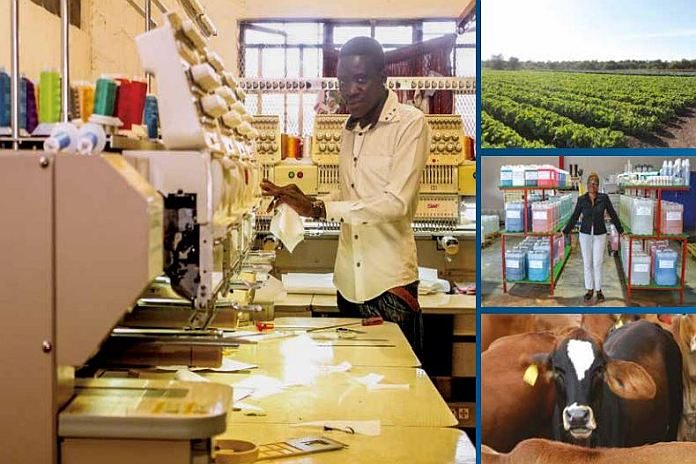GENEVA, Switzerland (ITC News) – Strengthening the competitiveness of Botswana’s small and medium-sized enterprises (SMEs) will help attain the goals of sustainable economic development envisaged in Vision 2036, the country’s development blueprint. Unveiled in Gaborone recently, promoting SME competitiveness in Botswana: A bottom-up approach to economic diversification is the result of a collaboration between the Ministry of Investment, Trade, and Industry (MITI), the Local Enterprise Authority (LEA) and the International Trade Centre (ITC).
According to a new report assessing the competitiveness of Botswana SMEs, targeted policies would enable Botswana’s businesses to take advantage of opportunities on the horizon, including the African Continental Free Trade Area, and support the diversification of the economy.
The report finds that SMEs in Botswana have strengths that could help them go global and suggests that policies be crafted to address remaining bottlenecks to seize interesting opportunities. For example, companies in the services sector are found to be particularly strong on skills and innovation. Interventions to improve information and communications technology infrastructure could unlock their potential and deliver dividends for services exports.
With a quarter of the population below the age of 25 and one of the highest rates of youth entrepreneurship in the world, Botswana has the potential to benefit from a significant demographic dividend. Yet, promoting SME competitiveness in Botswana suggests that youth-led companies trail other enterprises when it comes to management practices. Setting up management training for youth-led enterprises would help address these issues.
The report builds on data gathered from over 600 Botswana firms using the ITC SME Competitiveness Survey. Based on the collected data, it provides empirical evidence on opportunities to craft strategic competitiveness policies and programmes to boost exports by Botswana SMEs.
Survey results indicate that low rates of certification to international standards may hamper efforts to attract international buyers. Support to obtain certification may be particularly helpful in the agricultural sector, where experience has shown it can unlock exports of new products to new markets.
Diversified and sustainable economic growth
The report identifies opportunities to diversify the economy of Botswana by addressing constraints to the international competitiveness of its SMEs. It also highlights SMEs’ increasingly environmentally conscious approach as a source to boost sustainable economic growth.
The SME Competitiveness Survey shows that Botswana enterprises worry about the impact of environmental risks on their businesses and are taking steps to reduce their own environmental footprint. With most firms perceiving major environmental risks and 40 percent investing to reduce their environmental footprint, Botswana SMEs are playing a crucial part in the greening of the country’s economy.
Policies can address the constraints that hold back SMEs in Botswana, unleashing their potential to transform opportunities into new exports, more jobs, and through this spark a bottom-up process of inclusive and transformative development as envisaged in the sustainable development goals.





